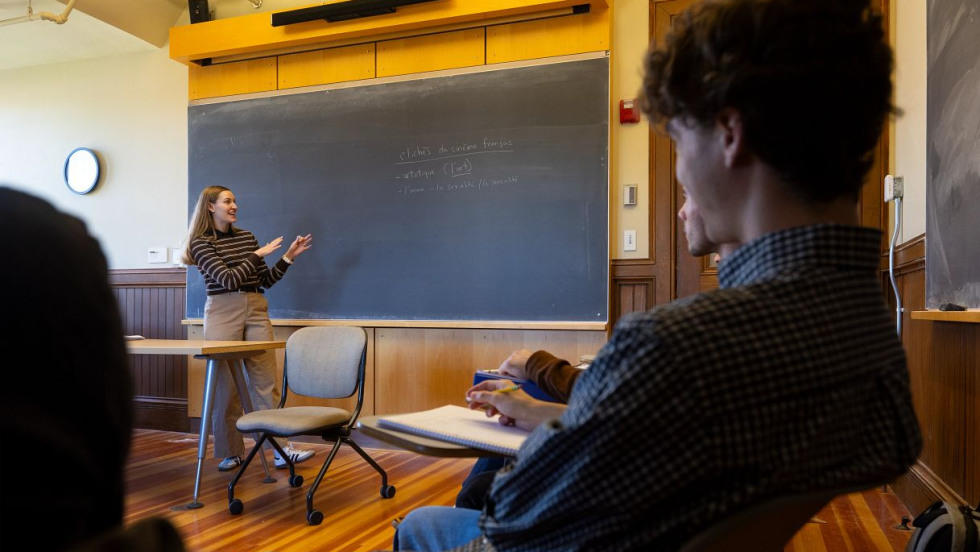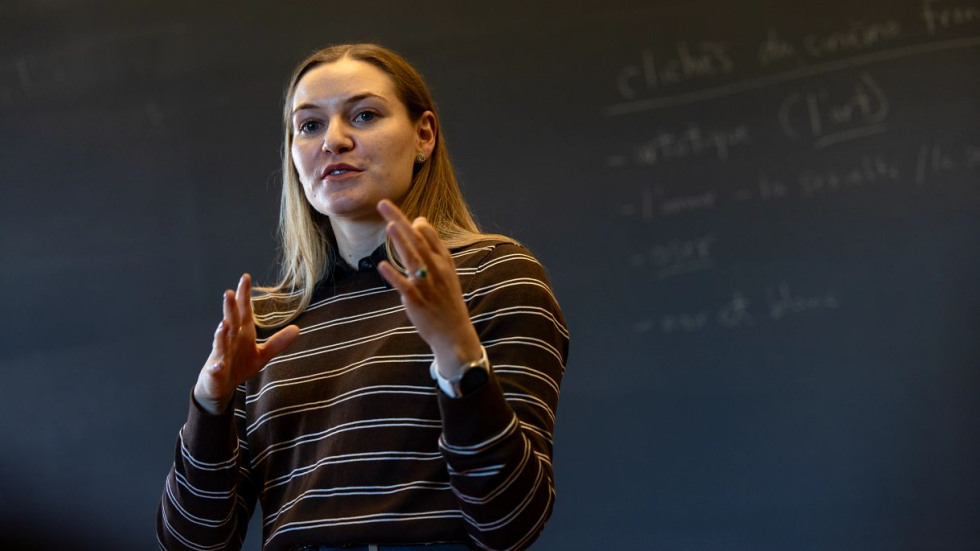PROVIDENCE, R.I. [Brown University] — Smell has long been an undervalued sense, says Chanelle Dupuis.
“It’s always been at the bottom of the sensory hierarchy, in that many people have historically thought of it as the least important of the senses,” said the Brown University Ph.D. candidate in French and Francophone studies. “The field of smell studies has had to fight to say, ‘smell matters.’”
Through a combination of rigorous scholarship, teaching and community engagement, Dupuis has dedicated much of her time at Brown to elucidating the importance of smell. She studies all facets of it, from fine French perfumes to foul odors related to environmental change.
Brown’s graduate program in French and Francophone studies has allowed her the flexibility to combine her passion for teaching and studying French with her academic interest in scents.
“Especially in French and Francophone studies, very little has been written about the importance and analysis of odors in literary text,” said Dupuis, who was born in Quebec, Canada, and speaks French as her first language. “That’s where I saw that there was a gap in smell studies and some work left to be done.”
Some of her accomplishments in the field include editing “The Senses and Memory,” a book published in 2025, and receiving a fellowship to conduct research in Paris on topics including perfume and literature.
Dupuis, who became interested in the senses and sensory perception as an undergraduate at Florida State University, said that Brown’s welcoming community and ethos of open inquiry have been essential to her development as a scholar.
“Yes, I’m in the French studies department, but I’m studying psychology, neuroscience, history, art history — everything I can find to have different ways of talking and writing and thinking about odors,” Dupuis said. “That kind of interdisciplinary research is really nurtured and encouraged here.”
While long overlooked, insights about sense of smell have proven increasingly important in everything from diagnosing diseases, like Alzheimer’s and dementia, to understanding how smell can influence people’s choices, actions and relationships. One of Dupuis’ mentors is Rachel Herz, an adjunct assistant professor of psychiatry and human behavior at Brown and an expert on the psychological science of smell. Herz is the author of a multiple texts on the topic, including “The Scent of Desire: Discovering our Enigmatic Sense of Smell.”


